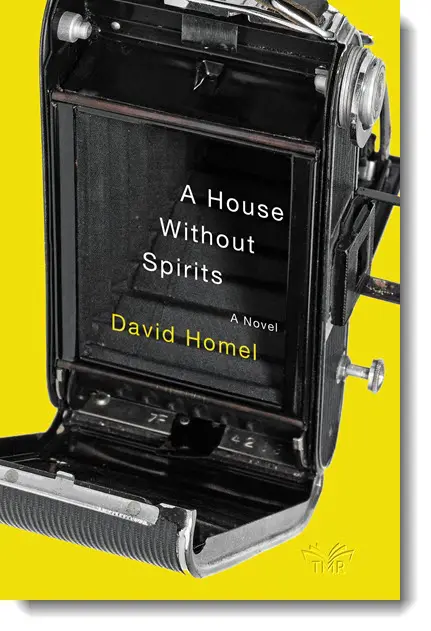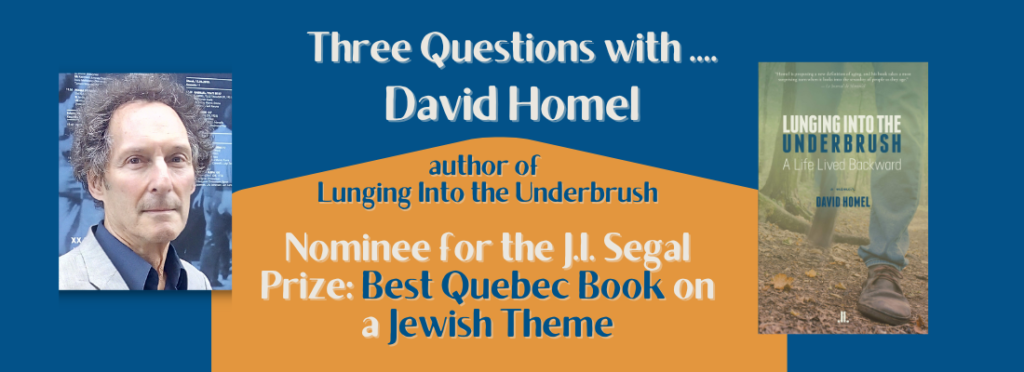Author David Homel’s memoir, Lunging into the Underbrush: A Life Lived Backward (Linda Leith Publishing, 2021) was recently short-listed for the 2022 J.I. Segal Award for the Best Quebec Book on a Jewish Theme (the prize is also accompanied by a $5,000 award). David Homel’s hard-to-classify 2021 memoir is a tale about the things we collect in life as we move along: the memories of place, of people, the insights, the scars, the baggage, the things that might have been and weren’t.
The book actually contains tales within tales (as our lives are often lived), but the real centre is a trip to Paris for his 18th birthday. It’s not a vacation or a Eurorail pass gap-year though. Homel, the young man, leaves his home in Chicago because he hears that Europe is where American men in 1970 can go to avoid being drafted into the Vietnam War. And who wouldn’t go to Paris to escape crawling through jungles and shooting people? But this is how fate works, of course: you close one door and another one opens somewhere else. He doesn’t get drafted (spoiler) though some of his friends do and some don’t survive. But he’s not off the hook yet, and as Homel suggests himself, he pays a high price for this “freedom.”
Christmas, 1970: while hiking in Spain, Homel has a nearly fatal fall and he “joins the ranks of the lame and crippled, the wounded, the almost-died.” The effects of this fall are life-changing for the author and the pain follows him from land to land, decade to decade, never really going away. A high price to pay for survival, yes. But survival is pretty nice. Most of us would just do just about anything to keep it.
But the impression I am giving is that Lunging Through the Underbrush is the story of a young man starting out in life. It’s not. It’s a book about the experiences that pile up, about what they do to us over time. It’s about the body and the body is everywhere in this book: young bodies used as American War fodder, aging bodies that don’t always do what we want them to (and often do what we wish they wouldn’t). Broken bodies. Men’s bodies, women’s bodies, failing bodies, healing bodies, changing bodies. Gina Roitman puts it more sociologically in The Montreal Review of Books : “[Homel] ruminates about our obsession with body image (from the perspective of both men and women), the aging process, performance anxiety (for men but not so much for women), and the choices that life offers us, if we’re paying attention.”
Of all the things one might say about Homel, the fact that he pays attention is hard to deny. It’s what makes a book like Lunging Through the Underbrush such a revelation. The nomination is very well-deserved. Here are three questions we recently posed to David Homel about writing and reading.
David Homel: Three Short Questions (with Short Answers)
What part of the writing process is the most exciting for you? Starting a project? Finishing it? Editing? Or some other part of the process? Why?
The most exciting part of the process is when you finally figure out how to tell the story you have on hand. Often it’s much easier to get a story idea than to discover how to actually tell it and from what angle.
 What under-appreciated book or writer are you a fan of and why?
What under-appreciated book or writer are you a fan of and why?
People don’t read Elias Canetti’s (Nobel Prize, 1981) Auto-da-Fe as much as they should. Admittedly, not an easy work. Called The Tower of Babel in the US.
If you weren’t a writer and could do a totally different creative profession, what would it be and why?
I’d be a soul singer from the 1960s, Wilson Pickett or Otis Redding. When I said that to my mother, she said, “You’re too white.” I’m not so sure…
In addition to his work as a writer in a number of genres, David Homel is a prize-winning translator and has worked in documentary film, print and radio journalism. His latest novel (his ninth) is A House Without Spirits (Esplanade Books, 2022), a “contemporary Montreal noir.”

There are a total of five short-listed works this year in contention for the 2022 J.I. Segal Award for the Best Quebec Book on a Jewish Theme. The other nominees are:
Pierre Anctil, nominated for Antijudaïsme et influence nazie au Québec | Les Presses de l’Université de Montréal, 2021
Pinchas Blitt, nominated for A Promise of Sweet Tea | Azrieli Foundation, 2021
Anne-Élaine Cliche, nominated for Le danseur de la Macaza | Le Quartanier, 2021
Robyn Sarah, nominated for Music, Late and Soon | Biblioasis Books, 2021
The winner of the prize will be announced on Thursday, December 22 at 10am. The other prizes will also be announced next week:
- and the Rosa and David Z”L Finestone Translation Award for a Book on a Jewish Theme (with a $1,000 award). The winner will be announced on Wednesday, December 21 at 10am.
- the Dr Hirsh and Dvora Rosenfeld Award for Yiddish Literature (with a $1,000 award). The winner will be announced on Friday, December 23 at 10am.
Congratulations, David, and all the nominees and winners!


